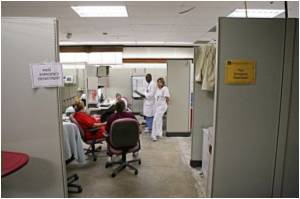
Their study showed that 73.7 per cent of patient records had no family history documented, and just 16 per cent contained a family history with specific details about the presence or absence of a medical condition in at least one relative.
“This retrospective survey found that family history is seldom documented by medical staff assessing acutely ill patients,” Dr Langlands said.
“As family history offers an increasing range of opportunities for improved health outcomes, any failure to routinely assess it is a lost opportunity to improve the health of those at increased risk of familial disease.”
In two accompanying editorials in the MJA, Dr Josephine Thomas, from the Royal Adelaide Hospital, Prof Campbell Thompson, from the Department of General Medicine at the University of Adelaide, and Prof Jon Emery, Chair of General Practice at the University of Western Australia, and his co-authors write that it is unrealistic for clinicians to record a patient’s family history in acute hospital admissions because of increased workload and time pressures.
“The acute admission is not an ideal setting for detailed and accurate history taking; patients are usually unwell and access to their family is compromised,” Dr Thomas said.
Advertisement
Prof Emery said that not all patients required detailed assessment of their family history, and that simple, self-completed family history screening questionnaires could assist time-poor clinicians in recording patients’ family history.
Advertisement
“It is time to reconsider the clinical benefits arising from family history and start making better use of it in clinical practice.”
The Medical Journal of Australia is a publication of the Australian Medical Association.
Source-MJA









